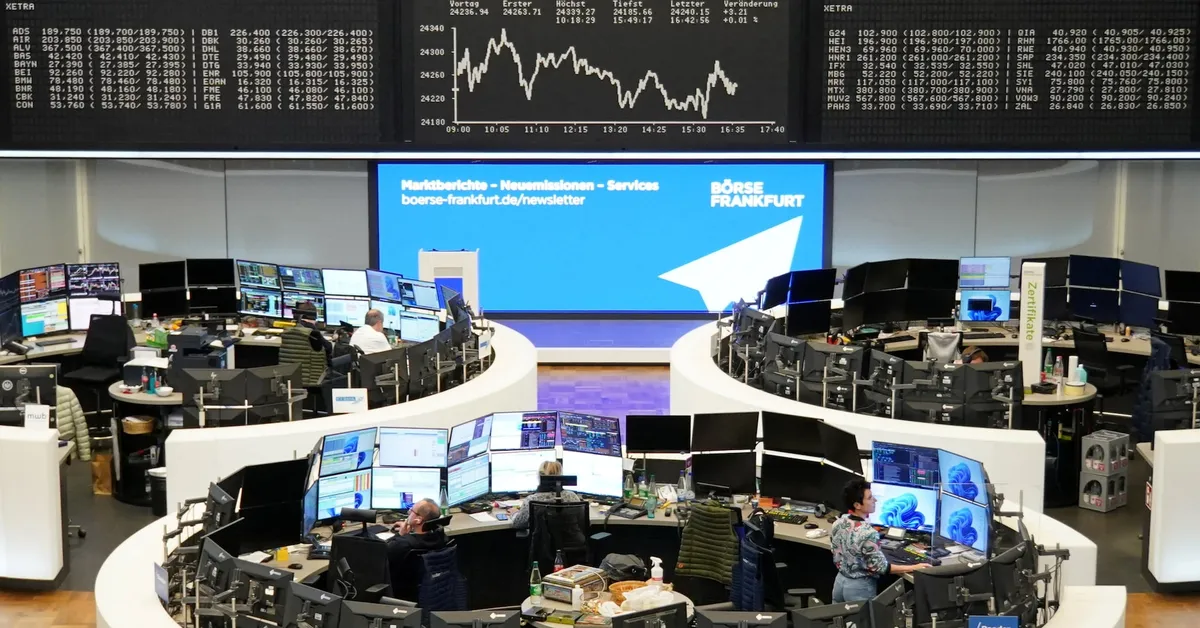
On October 16, 2023, global stock markets made a notable advance, nearing all-time highs as optimism surrounding artificial intelligence (AI) outshone escalating U.S.-China trade tensions. Additionally, France's government managed to navigate a pivotal confidence vote, bolstering stability within the European economic landscape. Despite this optimism, the allure of safe-haven gold remained strong as investors watched the dollar dip for the third consecutive day, while oil prices rose following U.S. President Donald Trump's announcement that India would cease purchasing Russian oil.
The success of French Prime Minister Sebastien Lecornu in securing a confidence vote provided a much-needed boost to the euro zone, capping a four-day bond market rally that had driven borrowing costs to their lowest levels in months. However, Lecornu's victory came with significant concessions, as he garnered support from the Socialist Party by agreeing to suspend President Emmanuel Macron's controversial plan to increase the retirement age from 62 to 64 by 2030. According to Michael Metcalfe, head of global macro strategy at State Street, the situation in France appears to have stabilized, at least temporarily. “They have reached a compromise that mitigates the risk of a snap election,” Metcalfe noted, while speculating on the potential for the dollar to fall further in the coming weeks.
The AI megatrend continues to gain traction, with recent developments contributing to an optimistic outlook. A leading tech CEO announced that confidence in the AI sector is strengthening, raising revenue guidance for 2025 to mid-30% growth in U.S. dollar terms, up from around 30%. The company also reaffirmed its commitment to invest up to $42 billion this year. “AI demand is stronger than we anticipated just three months ago,” CEO C.C. Wei stated during an earnings call. This positive sentiment is reflected in U.S. stock index futures, which indicate steady gains for Wall Street when trading resumes.
In a remarkable development, the price of gold hit a record high of $4,241.77 per ounce, contributing to a staggering 60% surge this year. As the dollar weakened for the third straight session, dropping 0.2% against a basket of major currencies, investors are closely monitoring Federal Reserve (Fed) rate cuts and China’s recent export controls on rare earth elements. This move has faced sharp criticism from senior U.S. officials, who warn it could disrupt global supply chains. Chris Turner, global head of markets at ING, raised concerns about whether China's actions are merely a bargaining tactic to gain further concessions from the U.S.
Amid the ongoing geopolitical tensions, oil prices have rebounded from five-month lows, with Brent crude futures rising 0.4% to $62.13 a barrel and U.S. West Texas Intermediate (WTI) futures increasing 0.7% to $58.69. President Trump’s announcement regarding India halting oil purchases from Russia is seen as a strategic maneuver aimed at applying pressure on Moscow amid the ongoing conflict in Ukraine. U.S. Treasury Secretary Scott Bessent indicated that Trump also anticipates a meeting with Chinese President Xi Jinping later this month in South Korea, highlighting the complex interplay of international relations impacting global markets.
In conclusion, as the global stock markets inch closer to all-time highs, driven by AI optimism and political stability in Europe, key factors such as gold prices, oil market dynamics, and U.S.-China relations remain pivotal in shaping the economic landscape.